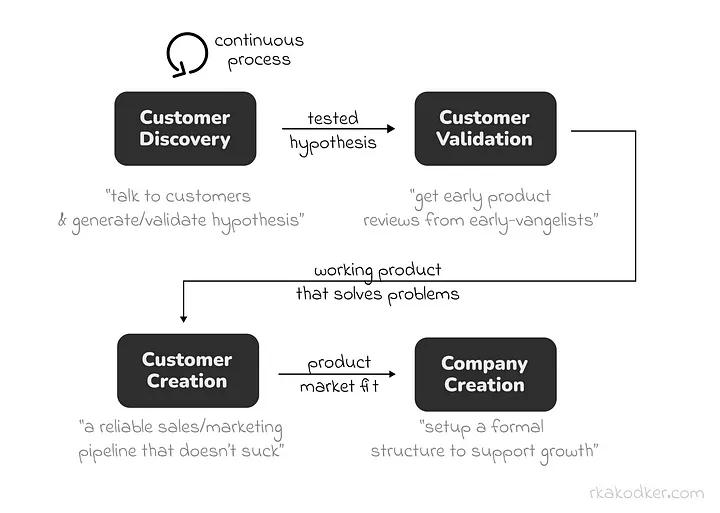Frameworks You Should Know is a new series that explores various product management related frameworks. Instead of just telling you the framework (which a Google search can tell you), I’ll be focusing on what makes the framework great and where you should use it.
At the end of the day, your choice of framework to use should depend on your organization and the culture they want to foster. YMMV.
What is this framework?
Have you seen products that appear to be solutions looking for a problem? Or appear so unnecessary that it wouldn’t make sense for them exist in the first place?

Sony still out here launching Walkmans — holding on to nostalgia or looking for a niche market? (link)
That’s where this framework comes into play. The fundamental principle of this framework is to validate hypothesis on what you consider as customer problems, i.e., identify the market and the problem they face. In lieu of product development, the framework demands customer development.
The four steps are:

Four steps to epiphany
Within each step, there is a lot to be achieved before you move to the next one. Collaboration within and outside the organization is needed to succeed at every step.
You can read more about the details here (book summary) or buy the book.
When should you use this framework?
This framework is targeted towards founders. The author (Steve Blank) infers:
The criteria for success is simple: products developed with constant contact with customers win; products that aren’t, lose.
As a PM, you should know this framework as it helps in the following:
Triangulating your organization/product on the four steps. This is a treasure trove for direction that you can champion within your organization. E.g. your product might be fantastic in retention, but without a good sales/marketing channel, you’re bound to fail eventually. Good products sold badly, fail.
Using the tenets from this framework to back-track and see if you missed out on anything. This is pretty useful, especially if you’ve not setup a good conversation loop with your customers.
Reminder to be customer centric! As your product grows, you tend to forget that your users are humans — and in this day and age of massive data streams, it’s easy to forget that. Talking to end-users (by literally meeting them face to face) is still essential — end-user surveys and behaviour metrics only tell a fraction of the real story.
Personal Opinions
This framework is the foundation of lean startup, a concept I’m very much in favor of… the degrees of separation between customers and the decision makers should be as low as possible, with individual teams being empowered to take decisions in line with the vision set.
If you’re a founder, or planning to be one, there will come a time when you’re caught up in multiple decisions that you had to take yesterday, and it will all feel pointless. Using this framework will ensure you have a proper roadmap. Definitely worth a look!
As the author quotes:
A good plan violently executed now is better than a perfect plan next week.
Thank you for reading! If you like this article, please check out the rest here.